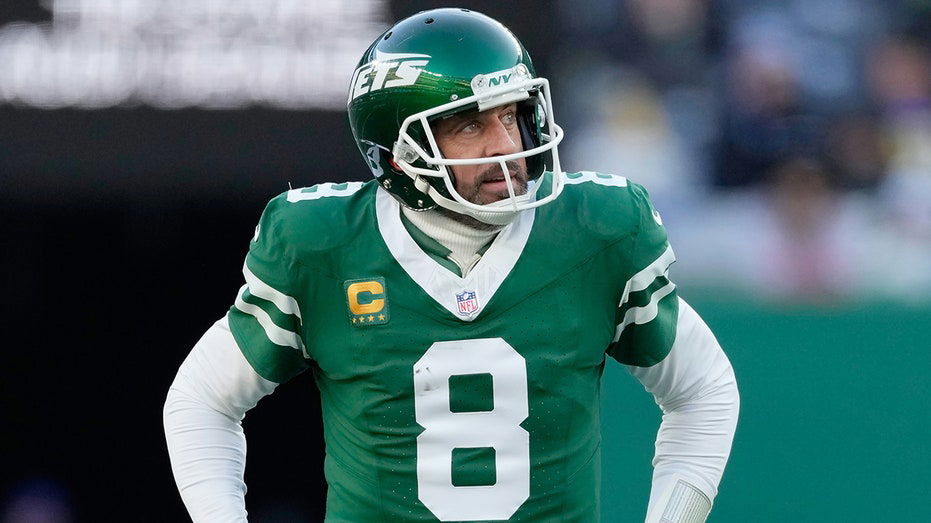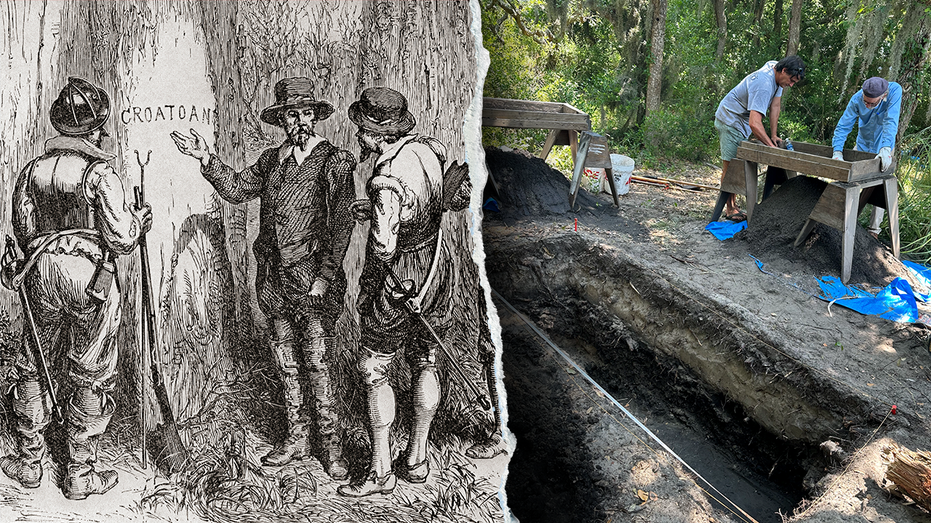- by foxnews
- 08 Jun 2025
?The gooey overlay of sweetness over genocide?: the myth of the ?first Thanksgiving?
‘The gooey overlay of sweetness over genocide’: the myth of the ‘first Thanksgiving’
- by theguardian
- 26 Nov 2021
- in news

In 1970, Massachusetts was preparing to celebrate the 350th anniversary of the arrival of the Pilgrim Fathers on the Mayflower.
The 53 surviving men, women and children who had left England in search of "religious freedom" are credited with starting America's first successful colony, in Plymouth, in 1620. Their voyage to the so-called New World is celebrated by many Americans still as a powerful symbol of the birth of the United States.
But at the last minute, event organisers reportedly realized something was missing.
So they invited a member of the Wampanoag Nation, or People of the First Light - the loose confederation of south-eastern New England tribes whose ancestors were immortalised as the "friendly Indians" who welcomed the Pilgrims and feasted with them at the "first Thanksgiving" in 1621.
Unfortunately for the planners, the person who returned their call was schoolteacher Wamsutta Frank James of the federally recognised Aquinnah Wampanoag, of Martha's Vineyard, Cape Cod, who drove a red Corvette with a bumper sticker that read: "Custer had it coming".
James said he would attend, on the condition he told the truth.
That included the fact that the Pilgrims robbed ancestral graves before establishing "America's home town" in the abandoned Native village of Patuxet, where an estimated 90% had perished from a European-originating pandemic they called the Great Dying.
And that the weakened Wampanoag saved the settlers, 50% of whom died the first winter, by teaching them to farm in return for trade and protection - only to be murdered in battle, sold into slavery, their land stolen, their language wiped out, their children taken for indentured servants and the survivors forced to convert to Christianity, by the very people who triumphed the right to worship.
In James's draft speech he wrote: "We, the Wampanoag, welcomed you, the white man, with open arms, little knowing that it was the beginning of the end; that before 50 years were to pass, the Wampanoag would no longer be a free people."
"That's not the happy story a lot of Americans believe," said his granddaughter Kisha James, 22, an Aquinnah and Lakota activist and first Native American to give a land acknowledgment at the elite Wellesley college.
"They were horrified and demanded he censor it."
After James, who died in 2001 aged 77, refused, he published the speech in newspapers around the US.
Weeks later, he stood by the statue of the 17th-century leader Ousamequin, in Plymouth, and declared Thanksgiving a National Day of Mourning for all indigenous people.
Mahtowin Munro, a Lakota and co-leader of the United American Indians of New England, which organizes an annual Day of Mourning that attracts 1,500 people and is livestreamed globally, said: "For many, Thanksgiving is the gooey overlay of sweetness over genocide. Even today, a lot of people think we are extinct."
As the most famous meal in American history, "Turkey Day" is a seminal piece of political and cultural theatre, with its purported values of "freedom" and "tolerance" taught to millions of schoolchildren wearing fancy dress and watching American football.
But there are increasing attempts to correct the narrative and make space for Native voices, from school curricula, to the appointments of the first Native American cabinet secretary in 2021 and US poet laureate in 2019, to the renamed Indigenous People's Day in Boston this year.
Instead, settler accounts reveal the Separatists, who had already found religious freedom in Holland in 1608 before leaving largely to preserve their own culture and language, were celebrating their first harvest by blasting muskets, causing "90 Wampanoag to arrive for war".
Peters added: "That being smoothed over, they stayed for a tense, diplomatic meal that may or may not have included turkey. For hundreds of years it wasn't mentioned again."
David Silverman, a George Washington University historian and author of This Land Is Their Land, said this "nothing event" transformed into "the modern Thanksgiving myth" in the 19th century, to sanitise "America's bloody, colonial history".
Other contributing factors include Protestant fundamentalists allegedly rebranding "obscure Separatists" as "Pilgrim fathers" to assert power over other immigrants, a Plymouth tourism campaign, and a revisionist footnote in an 1840s book naming the forgotten feast "the first Thanksgiving".
Today the Wampanoag, who once numbered up to 100,000 across 67 tribes, have 4,000 to 5,000 thriving, politically active members belonging to two federally recognised tribes and multiple other groups.
One such Renaissance Wampanoag is Jessie Little Doe Baird.
In the 1990s, the former Mashpee vice-chair had a vision where she "heard people speaking to me in a language I hadn't heard before".
Her tribe's Algonquian mother tongue had been lost for 150 years.
The grandmother of 10 studied historical linguistics at MIT, in Cambridge, to bring it back to life.
In 2010, she was awarded a MacArthur genius" grant.
Baird said: "We are a modern people but this focus on us just once a year keeps us in 1620. If we let indigenous people talk year-round, there's a better chance for equity and change."
Like all Native Americans, the Wampanoag are not a monolith. Some attend the National Day of Mourning to remember ancestors or find solidarity. Others find it painful or voyeuristic. Many simply eat a meal at home.
Melissa Ferretti, 53, chairwoman of state-recognised Herring Pond Wampanoag, of Plymouth, will attend on 25 November.
Her tiny tribe, which has just 175 citizens, are "ground zero", as the people who first encountered the Mayflower.
Their website reads: "We are still here."
She said: "We survived by silence. That was thought by some ancestors the best way to protect our dignity. But then we get to a place where we perpetuate our own erasure by not speaking out. I feel like the air is changing."
- by foxnews
- descember 09, 2016
Mystery of America's 'Lost Colony' may finally be solved after 440 years, archaeologists say
Archaeologists recently uncovered evidence pointing toward the fate of the Roanoke Colony, whose residents disappeared between 1587 and 1590 in North Carolina.
read more


